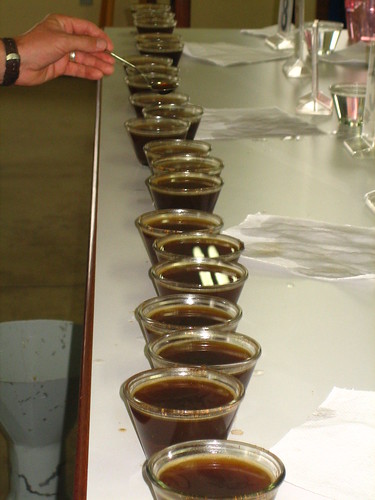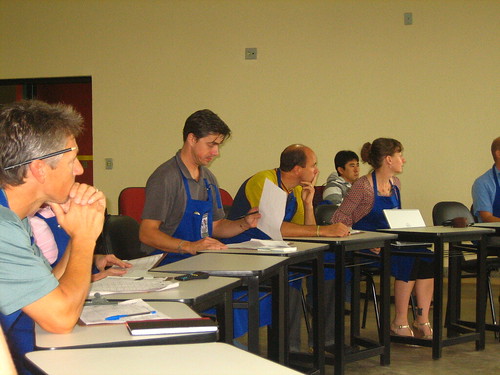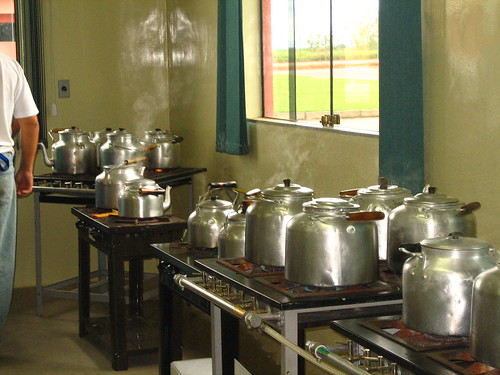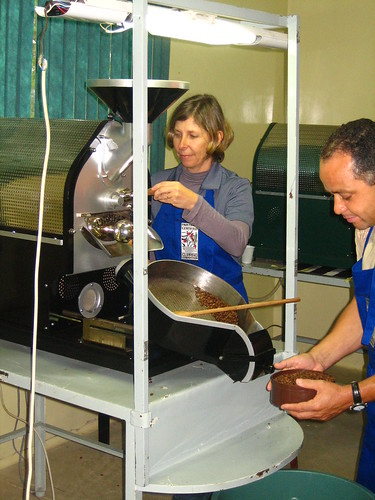Last, but not least, a calibration session can include a discussion of aromas, flavors, and taints particular to the origin. With naturally processed coffees, human influence on the quality of the coffee only goes so far. With the other half of our competition, the processed coffees, a farmer can do much more in post-harvest processing to ensure quality. One particular taint that can plauge Brazilian coffees is the infamous Rio-taint. A lot of work has been done over the years on this fungal contaminant (present in old #8 above) and we're extrememly lucky to have one of Brazil's foremost authorities on this phenomenon on our panel. Professor Flavio Meira Borem of the Federal University of Lavras related some of the recent studies on Rio-taint and how cherry hang-time on the tree is one of the largest factors involved.
Professor Borem has also been actively involved in the Responsible Sourcing Partnership through leading technical trainings for Fair Trade producers. He's also edited a wonderful new book on the technical aspects of post-harvest coffee care. Covering everything from the physics of drying to how to properly warehouse your beans, the book is a tremendous aid to Brazil's small farmers and co-ops. For those attending SCAA next year in Atlanta, you'll be able to purchase the English translation of Professor Borem's book on (and currently available for coffee nerds who read Portuguese.)
A few more pictures of the day's action:

Those nifty cups. They come with little plastic lids to keep the grinds fresh. They might be uniquely Brazilian

John Cossette of Royal, Darrin Daniel of Allegro, Joao Batista Jardli of SAAG Brazil, Takahisa Toda of MC Coffee Brazil, and Wendy de Jong of Tony's.

There's also an awful lot of hot water in Brazil

Roasting sample batches on the Probatinho
No comments:
Post a Comment